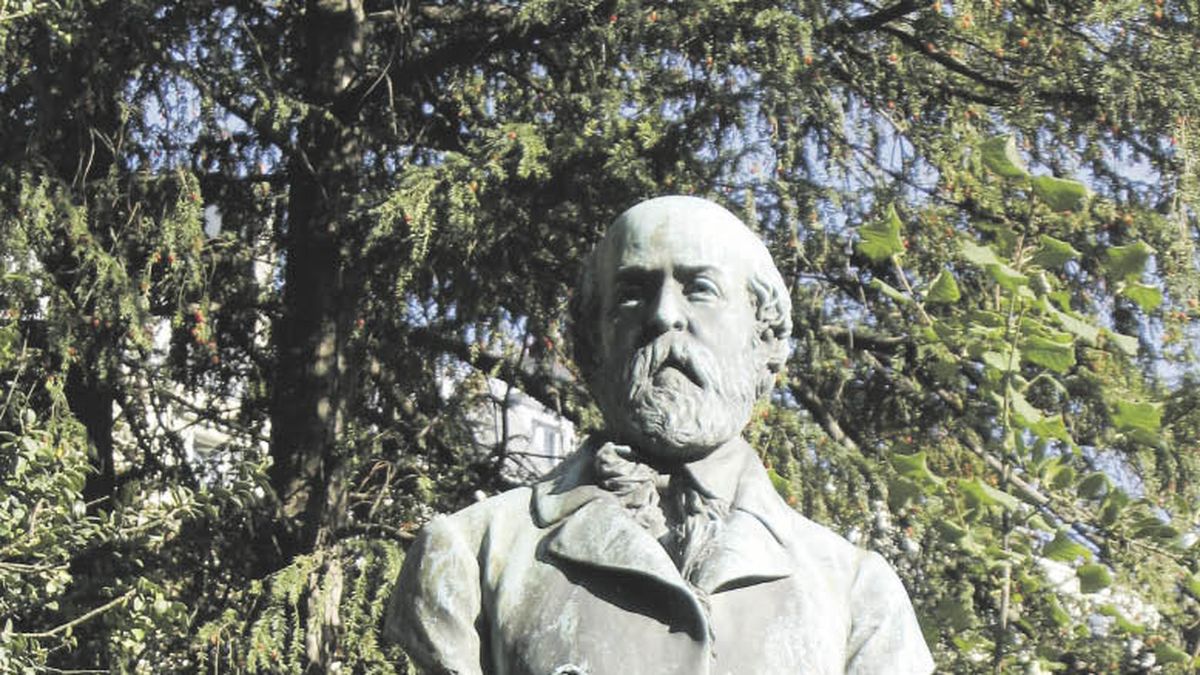Murger, indeed, intensely loved the various forms of art–music, painting, poetry–but showed no real talent for any of them. In addition, his father fought those inclinations since he wanted a serious man of work, as he had been all his life. Only his mother consented to some practices, especially verse, and always behind the father’s gaze. However, the good fortune was not only to live in the same building as that of the famous sopranos, but also to live there, in another more modest apartment, a picturesque and toothless member of the French Academy, Monsieur de Jouy, who when Henri became a teenager, and at the request of his father, he obtained for him a secretary position in the offices of a Russian count, Jakob Nikolaïevitch Tolstoy (just a namesake of the author of “Anna Karenina”), who was in charge of cultural relations between Paris and Saint Petersburg. In truth, this was just a façade, since Tolstoy’s real –and secret– activity in Paris was being a spy for Tsar Nicholas I.
Thus, without even imagining it –at first– the frustrated poet, painter and musician, found himself overnight turned into a spy in the service of the Tsar. Count Tolstoy paid him a salary of 40 francs a month, which, although it was far from being a sufficient sum, at least saved him from spending days fasting, like the many he had to endure, or from begging in the street to exchange for the reading of a poem set to music by one of his friends who are also hungry for fame. And of food. From there comes the life of “bohemia” (by the name given to gypsies in Paris), which brought together various later famous artists, such as the painter Gustave Courbet (the one with the “scandalous” female nude “The origin of the world”), Bonvin, Chintreuil, the musician Schann (Schaunard in the opera), the philosopher Wallon (Colline), etc. But, in addition, the few tasks that Murger had to fulfill at Tolstoy’s allowed him to seek and finally find the profession that would make him famous and that, even moderately, would lift him out of poverty: that of a serial writer in popular serials, whose Reading was then as ingrained as watching series on Netflix today.
For this he had to overcome two obstacles: give up writing in rhyme (for him prose was something unworthy), and find magazine editors who would publish them. He soon found them: one was “The Artist”, the other “The Corsair”, and later he would end up founding “The Beaver” (which is mentioned in the opera). In “El corsario” he had his first great success, “Orbassan, el confidante”, which helped the magazine sell out issue after issue. The editors kept asking him for new episodes as, following the simile, if they commissioned him for new seasons. But, in those days, something serious happened: the 1848 Revolution in Paris, in which King Louis-Philippe was forced to abdicate, and Alphonse de Lamartine proclaimed the Second French Republic.
Already in the days before, with the revolution underway, Count Tolstoy summoned Murger so that, thanks to his political contacts (many of which he forged, together with the bohemians, in the Café Momus) he could inform him of something more than his feuilletons. The Tsar needed data and dates. And on the same day of the Revolution, Murger made a mistake worthy of an episode of Super Agent 86: Tolstoy forced him to write a whole series of letters with the information, and he, who did not want to delay with the serial, mistakenly stuffed the last one in an envelope. page of a chapter with a letter to the Tsar, and sent them crosswise.
Thus, a chronicle of the time tells us, Viremaître, director of “The Corsair”, received the following letter in Murger’s handwriting: “Your Highness, the Revolution triumphs. At the time I write these lines, the people, owners of the Tuileries, are carrying out looting and desolation there. Louis-Philippe and his family are on the run. The lords of Lamartine, Ledru-Rollin, Louis Blanc, Marrast and others, meeting at the Hôtel-de-Ville, determine the fate of France”. But greater was the surprise of Nicholas I when, instead of a minute of the Revolution, he received the end of the heartbreaking love story of the romantic hero Orbassan.
The rest is known history. The serial “Scènes de la vie de Bohème”, in which Murger transformed into his alter ego Rodolphe, became his greatest success, a play (which, despite its success, did not want to go see his own father), and, in 1896 with a libretto by Illica and Giacosa, in the most popular Puccini opera in history.
Source: Ambito
David William is a talented author who has made a name for himself in the world of writing. He is a professional author who writes on a wide range of topics, from general interest to opinion news. David is currently working as a writer at 24 hours worlds where he brings his unique perspective and in-depth research to his articles, making them both informative and engaging.

